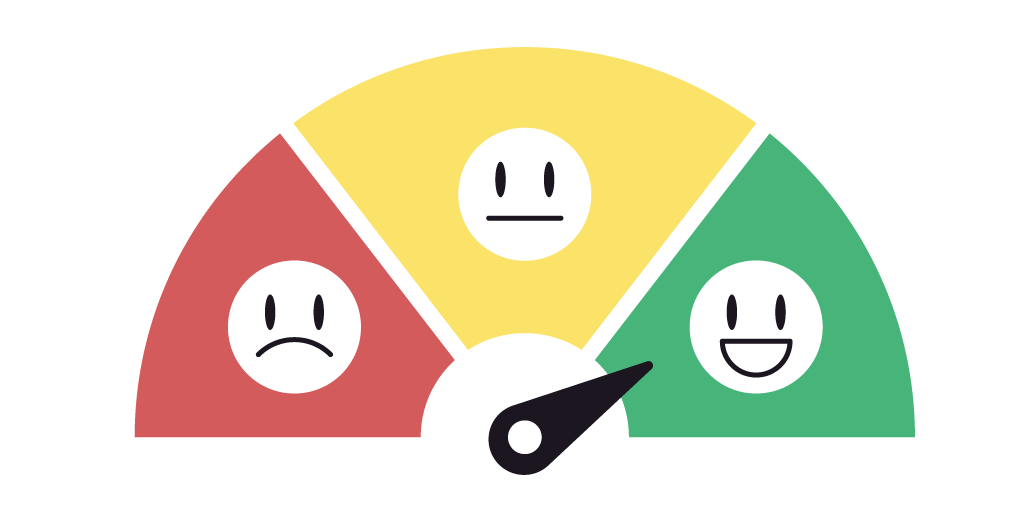Long queues scare away customers. Anyone who has ever shopped knows this. How likely are you to wait in a line that stretches out the door?
Businesses have to be concerned over this fact. After all, if customers refuse to wait in line or leave your store with a sour taste in their mouth because the line was too long, it will affect the business’ bottom line.
In this article, we’re going to take a look at a few ways in which long waiting times have a negative impact. By seeing the ways in which long lines hurt sales, businesses can begin to rectify them.
The Negative Effect of Long Waiting Times
When customers wait for a grudgingly long time they may check out but they’ll never return to your store. First impressions matter: one bad experience can scare away a customer forever.
After all, research has shown that people are wired to remember negative experiences over positive ones. It might even be an evolutionary advantage, but it’s certainly not an advantage for business.
This means that bad queues stick to our minds like glue and ultimately inform the perceived waiting time customer satisfaction. As Dr. Queue himself, MIT researcher Richard Larson, says:
“Often the psychology of queuing is more important than the statistics of the wait itself.”
What happens when businesses can’t figure out how to reduce customer waiting time?
Customers Refusing to Wait

A customer wait time analysis has conclusively shown that people won’t wait very long before leaving your store for good. In fact, customers are willing to wait only 14 minutes before being served.
In one survey, businesses reported that they lost 75% of customers due to waiting times. And when a customer leaves the door with nothing in their hands but frustration, they’re unlikely to ever come back.
We are now a society that wants instant gratification, or at least gratification with the least amount of waiting possible. That means utilizing the best way to reduce waiting time.
But outdated queueing strategies like ineffectual take-a-number systems can’t keep pace with the modern world.
However, it’s not just long lines that can scare customers out the door. Businesses have to pay attention to other aspects of their store if they want to figure out how to reduce waiting time.
- A confusing in-store experience can make finding items take too long, leading customers to leave.
- An unfair queueing system sees customers become frustrated when other customers queueing after them check out first.
- Customers initially don’t mind waiting, but as they become bored, they grow increasingly more stressed and frustrated.
The point being quite simple, but with huge ramifications: long waiting times cost your business sales. So, it’s paramount to understand the psychology of queueing.
Behavior of Queue Standers

Thanks to substantial research in queueing theory over the last three decades, we can determine how people behave when lines are too long. Nearly 50% of customers will wait in queue despite feeling irritated.
And feeling irritated leads customers to behave in distinct ways. Ways that make your bottom line shrink up.
So, let’s take a look at three behaviors customers that exemplify what happens while waiting in long lines.
1. Jumping From Line to Line
Trying to secure the best line in the store is called “jockeying.” This behavior can only occur in stores that stick to that aforementioned model of multiple lanes. A model that fails to reduce customer waiting time.
Why exactly are multiple lanes bad?
Well not only are multiple lanes proven to be less efficient than single serpentine lines, but when customers see multiple lanes, hey become anxious.
Imagine there are 10 lanes in a store. That means there’s only a 10% chance you’ve chosen the right lane when checking out.
Uneasiness leads customers to doubt themselves. So they jump (jockey). And jumping from one line to the next only creates confusion, hiccups, and slows the line down for everyone.
2. “I’m Not Waiting in That Line!”
When customers look at a line and decide the better strategy is to leave their items on the nearest the shelf, they’re balking. Waiting is judged as not being worth their time.
Again, it’s a perceptual issue. A long line may move fast, and a short line may be very slow. It all depends on context.
But context isn’t important for customers. What is important is that a business knows how to reduce waiting time.
Whereas Disney World promises thrill-seeking and joy at the end of their lines, typical retail purchases are just another item to be checked off a to-do list. So, customers aren’t as invested.
If businesses can’t convince customers that waiting in line won’t pay off, they’re likely to not wait around at all.
3. Frustrated Enough to Leave

Perhaps the worst behavior businesses face with long lines is reneging. This is when customers have waited to make a purchase, but leave the line because they become frustrated.
Waiting in line is painful.
In fact, it can even become physically painful when waiting in environments like healthcare turns to extreme stress. That stress only exasperates the perceived waiting time customer satisfaction.
That frustrated uncertainty resonates well after leaving the line too. An entire shopping experienced can be summarized by the negative emotions associated with waiting in line.
The Effect of Boredom and Anxiety on Customers

When customers feel bored they can’t help but think about how long they’ve been waiting on line. They’re minds expand their boredom until it’s all they can think about. And their perception makes the situation seem far worse than it actually is.
Studies have shown that perception of time is often longer than the actual waiting time when bored.
The trick, of course, is to keep customers entertained. But too many businesses fail to recognize the value in distracting customers waiting in line.
Giving customers something to do while they wait is the best lesson businesses can take away when finding ways to reduce queue waiting times. It’s one of the 4 ways to make queues enjoyable.
To briefly mention a few ways businesses can increase perceived waiting time customer satisfaction:
- Use digital signage, which means HDTVs with entertaining programs or the latest deals to entice customers.
- Form the line around checkout aisles, with items that may lead customers to a last-minute impulse purchase.
- Request customer feedback: ask customers to report their experiences on social media, an online survey, or physical survey.
There are more ways to keep customers entertained. Many international airports will feature musicians near the security line to keep customers distracted from an impending pat down.
What method a business adopts isn’t important. What is important is the golden rule of queue management: keep customer’s minds off the time.
If long waiting times are plaguing your store, it’s time to develop a new strategy. Identifying some of the aforementioned issues is a start. Then it’s time to head to the drawing board and create a strategy that works for your business.
One of the most helpful tools a business can adopt when discovering ways to reduce waiting times is a queue management system, like Qminder. Qminder not only improves the efficiency of queues but also provides tools to improve your customer experience.
Qminder is free to try for two weeks, no credit card required.






